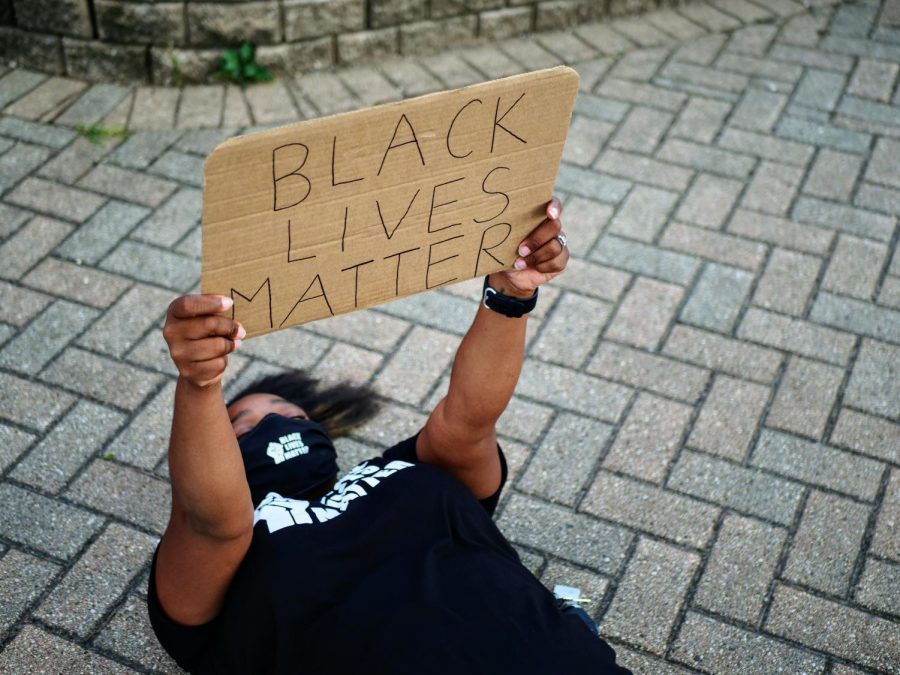Continue supporting Black Lives Matter
Patrick Murphy | Northern Star
Black Lives Matter protester, Jessica holds a sign as she participates in a die-in protest in Memorial Park on Thursday July 23, 2020.
August 30, 2021
After a Minneapolis police officer brutally murdered George Floyd, a Black man, in May 2020, Floyd’s death received mass media coverage along with highlighted advocacy from the Black Lives Matter movement. However, the movement is not receiving the same amount of attention it had in 2020. While it’s great that many people posted, petitioned, protested and donated, Black lives still matter.
The media is constantly creating a new feed for its target audience to consume.
“As a country, when things are removed from the media, people tend not to focus at the same level,” said Monique Bernoudy, assistant vice president of Academic Diversity, Equity and Inclusion.
It makes sense as to why average media consumers are less likely to partake in advocating for social justice, but this kind of negligence will only lead to a lack of overall social change.
There are still many problems that Black people face every day in America, and race-motivated aggressions have occurred in this country for centuries.
“This country has been built on inequities and injustice for Black people; that’s the foundation,” Bernoudy said.
The Black Lives Matter movement is not a movement that stands for something intangible. It’s complex because there’s a lineage of history behind it that involves the lives of people who were and are systematically oppressed. However, it’s important to remember it’s not about politics, and it’s not for arguing.
It’s about realizing that there is a large demographic of people in America who suffer from systemic racism. Floyd’s death caused an uproar in American society, but the reality is, this happens to a lot of Black Americans, which is why systemic racism needs to be addressed.
“Black Lives Matter is also not about trying to elevate blackness or Black lives above all other lives,” said Joseph Flynn, associate professor of curriculum and instruction. “We ought to be pursuing laws, policies and social practices that reinforce the notion that Black lives matter, and create a more fair and equitable society.”
These types of changes can include: Black women receiving adequate healthcare, Black people not being surveilled or attacked by police officers and Black children not having to grow up in a society that has so many systemic factors stacked against them.
Advocating for Black lives doesn’t cost anything. It’s not a win/lose situation. It’s about human empathy and remembering that Black people deserve to engage in a system that treats them fairly.







